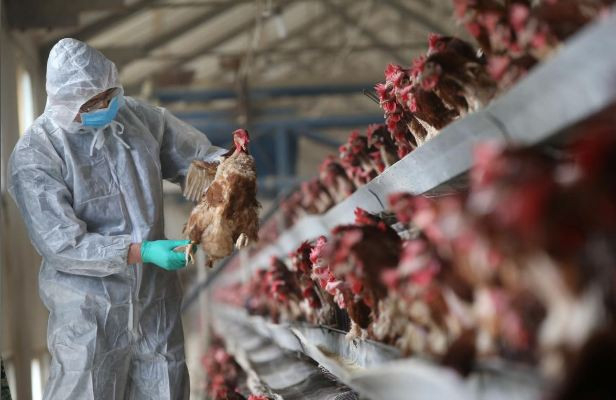Russia is striving to reassure the world the first known case of bird-to-human transmission of the bird flu virus subtype H5N8 discovered in southern Russia is not another COVID-19 pandemic in the making.
On Friday, Russia reported the first known cases in humans of H5N8 after weeks of testing. Seven Russian workers at a poultry farm in southern Russia were confirmed as infected by H5N8, said the Federal Service for Surveillance on Consumer Rights Protection and Human Wellbeing (Rospotrebnadzor).
Rospotrebnadzor also noted there are ongoing bird flu outbreaks in southern Russia. It claims there is no evidence of human-to-human transmission in this episode.
"Today, I want to inform you about an important scientific discovery made by scientists at the Vector scientific center," said Dr. Anna Popova, the head of Rospotrebnadzor, on Saturday.
"The first cases of human infection with [avian influenza A(H5N8)] have been laboratory confirmed. The virus can be transmitted from birds to humans, it has overcome the interspecies barrier," she said.
"As of today, this variant of the influenza virus is not being transmitted from person to person. Only time will tell how quickly future mutations will allow it to overcome this barrier," said Popova in an ominous warning reminiscent of statements made by Chinese authorities early on in the COVID-19 pandemic.
She described the human cases as "mild," however. Popova said the infected Russians feel fine now.
"This situation did not develop further," she said.
She said Russia reported the cases to the World Health Organization (WHO) "several days ago, just as we became absolutely certain of our results."
Popova said the disturbing discovery will help researchers prepare for the possibility of human-to-human transmission of the H5N8 virus.
WHO confirmed it had been notified by Russia about the human infections with H5N8 and said this report,if confirmed, will be the first time the strain had infected humans.
"Preliminary information indicates that the reported cases were workers exposed to bird flocks," said WHO. "They were asymptomatic and no onward human to human transmission was reported.
"We are in discussion with national authorities to gather more information and assess the public health impact of this event.
H5N8 has been found in birds since 1983. Outbreaks have occurred frequently since 2014 but have accelerated over the past six months. The current wave of H5N8 type influenza outbreaks are sweeping through bird and chicken populations in France, Germany, Italy, Spain, the United Kingdom, China, Japan, and South Korea.
WHO points out H5N8 is regarded as pathogenic or lethal to birds. The virus currently manifests itself in a variety of ways, from asymptomatic and sub-clinical to highly lethal in some avian populations.
Until the confirmed cases in Russia, H5N8 wasn't typically associated with humans. In January, National Health Service of the United Kingdom said the H5N8 strain hasn't infected any humans worldwide to date. The confirmed infections in Russia have changed all of that, however.






